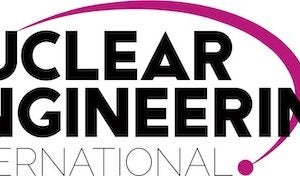AS BRITAIN’S PLANNED EXIT FROM the European Union draws closer, the most recently published White Paper has revealed the effects that it may have on the nuclear engineering sector.
After the Brexit referendum, officials in the nuclear power industry were keen to quell fears that it would have a lasting effect on the industry. EDF’s chief executive officer Jean-Bernard Lévy made a statement that the UK’s decision to leave the European Union would have no impact on EDF Energy’s strategy to build the first new nuclear power station in the UK in almost 20 years. Construction on the site of Hinkley Point C began in December 2018 and the plant is due to begin operating by 2025. However, the type of workers that are needed for these kinds of construction projects appear to have been overlooked in the UK’s planned visa process. Exacerbating matters for the sector, businesses looking to fill nuclear engineer vacancies will also be hindered by a complicated Sponsor Licence application. If Brexit is carried out successfully, then EU workers who would be looking to move in and out of the UK will find their path impeded by the end of the ‘free movement of workers’ that comes with membership of the EU. Employers in the nuclear engineering sector will struggle to fill vacancies without the opportunity to regard labour from anywhere in the EU as a single ‘pool’.
Engineers: applying for a Tier 2 Visa
Assuming Britain leaves the EU as planned, workers that want to enter the UK job market from outside the country will have no choice but to apply for a Tier 2 visa. However, substantial difficulties arise when reviewing the specifications an individual must fulfil to be eligible for this kind of visa. Potential employers – once equipped with a sponsorship licence – are required to give each migrant employee a Certificate of Sponsorship. For the employee to meet the criteria of the Tier 2 work visa, the employer must also offer them a minimum annual salary of £30,000 since this is a necessary requirement of this visa category.
There are a number of jobs in the nuclear engineering sector that the government has listed on the UK’s ‘Shortage Occupation’ list, but some of them do not reach the minimum salary requirement. Engineering professionals in the civil nuclear industry’s waste management and decommissioning areas are listed as earning £32,000 if they are experienced, but entry level individuals could potentially only earn £26,100. Under the subsection of production and process engineers, a ‘technical services representative in the decommissioning waste area of the nuclear industry’ at an entry level position would earn only £22,900, and an experienced professional would earn £30,000 – barely scraping the minimum requirement.
In the latest Immigration White Paper, the government said it has removed the 20,700 annual cap that previously existed for individuals applying for a Tier 2 work visa. As evidenced by these previous salary figures, many potential workers in the nuclear sector will be unable to qualify for the minimum requirements and therefore cannot successfully complete an application. The nuclear engineering sector may lose many of those classed as ‘low-skilled’ workers who are in fact crucial to the running of the industry.
Considerations for nuclear businesses
Nuclear engineering businesses looking for potential employees must also consider the ramifications of leaving the EU. They will have no choice but to acquire a Sponsorship Licence – something that the Confederation of British Industry (CBI) has criticised as a “prohibitively expensive and time-consuming process”. Attempting to counter this, the government made promises in the White Paper that the requirements for the licence will be ‘light touch’, and that the process will be ‘streamlined’. However, there is no denying that carrying out the necessary administration for this process will come at substantial cost to smaller businesses, especially considering the administrative staff that will need to be employed.
One of the requirements for a licence is to be able to prove that your businesses will be able to keep up-to-date and highly organised human resources systems and records by having at least three members of staff to fulfil the roles required under the Sponsorship Licence process. If businesses decide that they are unable to justify the costs of this process, then they will have no choice but to hire only individuals who were born in the UK. Without a doubt, this will have considerable impact on the engineering industry overall, since it relies heavily on overseas workers who would be considered ‘low-skilled’ workers under this filtering system.
With this exclusionary visa process likely to hit all subsections of the engineering sector, both businesses and individuals working with nuclear elements are likely to find their work affected in the post-Brexit climate. The government must consider how their misguided prioritising of ‘highly-skilled’ and ‘highly-paid’ positions overlooks some of the most important contributors to the industry.






